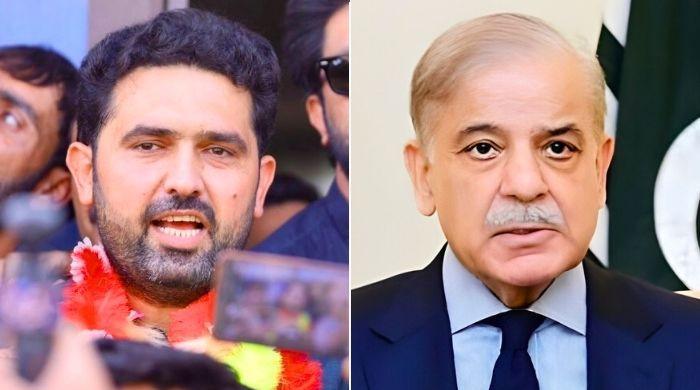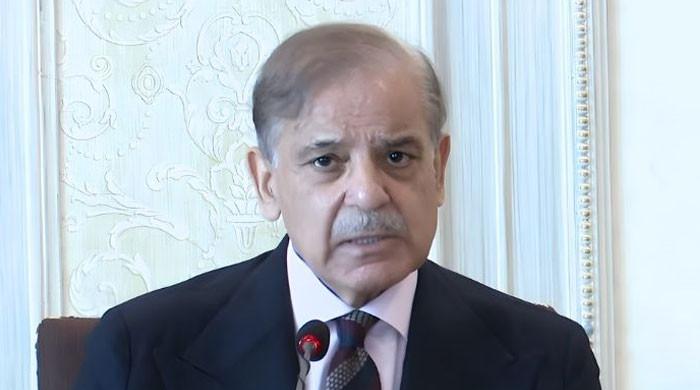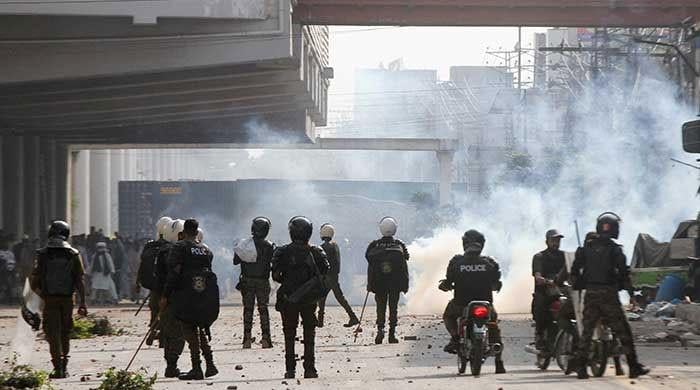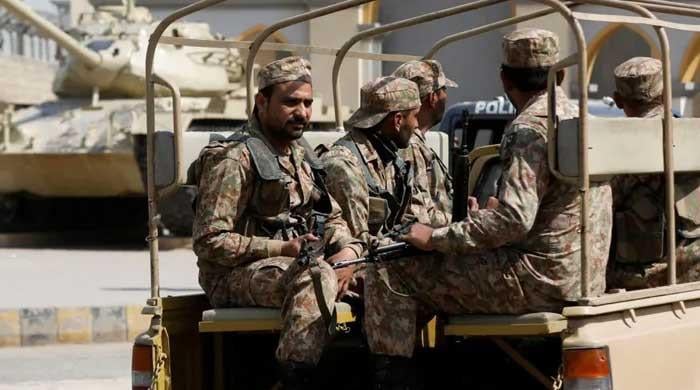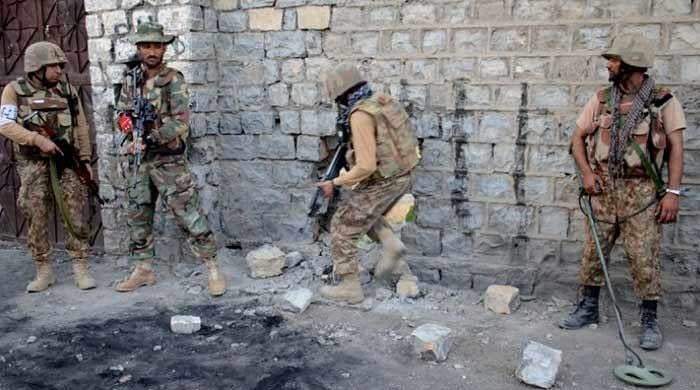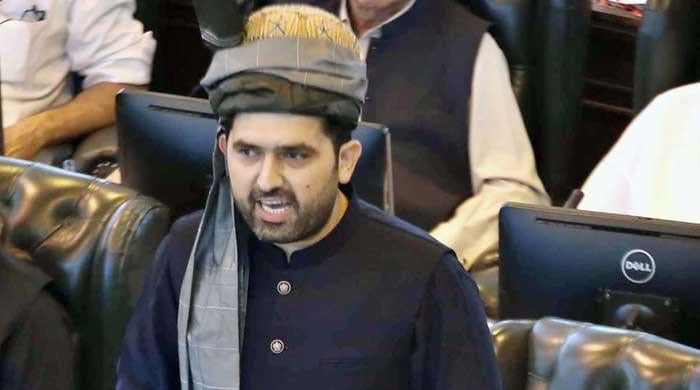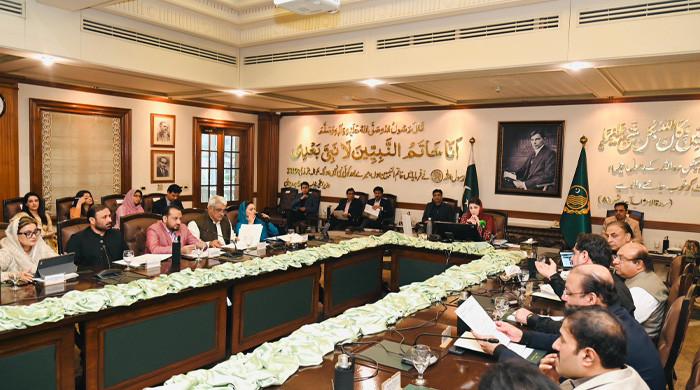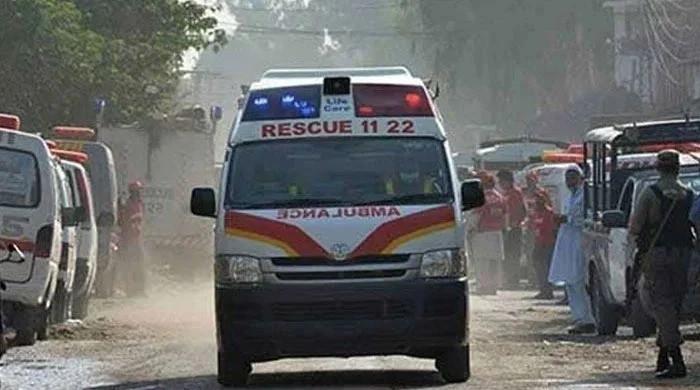Future of Mohajir politics
Irrespective of the fate of Altaf Hussain-led MQM which has practically been pushed to the wall, the future of Mohajirs in politics also looks quite uncertain
July 29, 2016
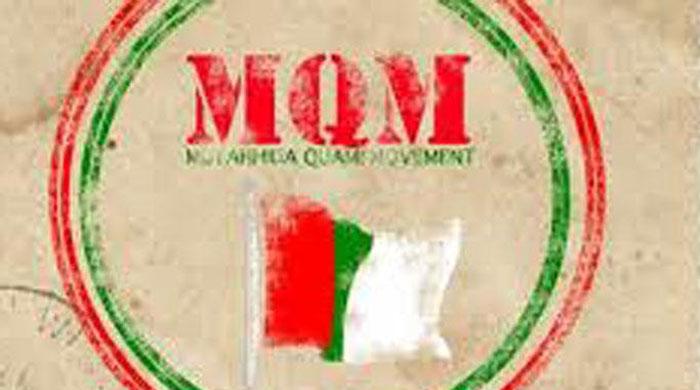
As the new chief minister Syed Murad Ali Shah takes oath today, never before a strong urban force such as MQM rather Mohajirs faced an uncertain political future.
The party, with whom the Mohajirs remained associated with for the past 32 years, has been facing serious challenges since its birth in 1984. Unlike in the past, the establishment has practically put an 'X’ for any negotiations with them unless they fulfill some preconditions as confidence-building measures.
What the establishment really wants from MQM? Sources say it’s minus Altaf, complete overhaul of the party, dissociating with ‘militants’ which they believe also include some senior leaders, making party more open and closing 24/7 service at Nine Zero and Khursheed Memorial Hall, particularly after midnight.
The minus Altaf formula is the toughest for MQM to accept, but sources say it is the key for any future relief for the party. If the party does not reconsider or review its position, it may face some more tough measures in the coming months.
All the MQM protest rallies still revolve around ‘Jeaye Altaf’ and, if you can see, the recent walk chalking in urban Sindh ‘Altaf Our Spiritual Father’. The party flags show ‘Jeaye Altaf’ slogan. So, the MQM has yet to discard its original position – ‘Manzil Nahi Rahnuma’.
The question remains that why the MQM considers Altaf Hussain as integral part of its politics and is not ready to give up. "It is our party and only we have the right to decide our future. Altaf is our destiny," said a hardcore MQM leader on condition of anonymity.
However, the MQM’s own leadership for the past three years has also remained concerned about Altaf Hussain's speeches and remarks against the military establishment, which led to a ban on his live or recorded addresses on TV, something which caused MQM an irreversible loss.
As a result, the political leadership and governments in Sindh and Centre also distanced themselves from MQM. It would be interesting to see whether Murad Ali Shah visits Nine Zero or not.
So, what options the MQM leadership is left with and what alternate its strong Mohajir vote bank has? If the circumstances force MQM to withdraw its nominated candidate for the Karachi mayor, Waseem Akhtar, and if it also receives a setback in the elections of chairmen and deputy chairmen, it would not be difficult to judge as what has pushed MQM to the wall.
The MQM leadership, particularly of London, has decided to internationalise the human rights violations during the operation, which include custodial deaths, missing MQM activists, thousands of cases and arrest of two former ministers and a mayor candidate.
The most dramatic development is the planned visit of the MQM chief to the United States in October, depending on the outcome of the cases against him in London. Though they still have three months before his visit, it indicates that the MQM's overseas leadership has decided to use ‘victimisation of Mohajirs’ as an issue after it failed in getting support of mainstream political parties in the country and is not very optimistic about getting any relief from the Sindh government despite the change of chief minister. On the contrary, it fears Syed Murad Ali Shah may take a more hard position and back Rangers operations in Karachi.
The MQM had used this option in 1992 and 1995 as well. But this time round, it may also face counter attack from its dissidents, including Mustafa Kamal and his Pak Sarzameen Party. Even last week, the supporters of the two factions held protest and counter protest.
There appears to be some disconnect between the MQM London and the MQM Pakistan over party's reform agenda. There are organisational problems as well as internal differences over the counter strategy.
The MQM leaders in Pakistan say they are finding it extremely difficult to motivate workers, secure the jobs of thousands of Mohajirs who may be fired on one account or the other.
Thus, all this made the local government elections most important for them, which they won despite difficulties, and are now in a position to get their mayor elected. However, the Sindh government had curtailed the major powers of the mayor, chairman and deputy chairman, including financial and the authority to dismiss the mayor.
The manner in which seven police officers made their own joint investigation team (JIT) and later claimed that Waseem had admitted his role in May 12, 2007 killings generated a sharp reaction from none other than Leader of the Opposition in the National Assembly Khursheed Shah. "How this can be called JIT. The Sindh government must take notice of it. The government constitutes a JIT," he said.
Without going into details, it was clear that the Malir police took his remand in another case within 24 hours of his arrest, followed by reopening of multiple cases including the one concerning the high-profile May 12 killings, which exposed the real intention behind the move.
Thus, the MQM leadership received a strong message. Even when he was nominated, there were reports that his selection as mayor would not be acceptable to certain quarters because of his tough position on the Karachi targeted operation and certain political matters.
Moreover, the MQM is also facing difficulties in keeping its strength of UC chairmen, deputy chairmen intact.
It also claims that hundreds of its alleged militants are in custody, with thousands of others finding it difficult to stay at home due to raids, and some of its top leaders are abroad for security and safety reasons.
The MQM leadership made some changes in the party setup and abolished their controversial sector and unit in-charges, replacing them with UC in-charges. They also decided not to resist the arrest of those who were allegedly involved in the militant activities in the past.
However, it appears as if the decision has been taken ‘somewhere’, not to give any major relief to the party, and as a result, the MQM Pakistan ran out of options.
Irrespective of the fate of Altaf Hussain-led MQM which has practically been pushed to the wall, the future of Mohajirs in politics also looks quite uncertain.
What options Mohajirs do have now? Reverting to their old parties like Jamaat-e-Islami? But Jamaat looks towards PTI which could not consolidate its position after 2013. Or will there be other options such as the Pak Sarzameen Party led by Mustafa Kamal and Anis Qaimkhani?
However, none of these parties have come out with any programme to address the political and economic rights of Mohajirs. Though Mohajirs are also disappointed with MQM, they still vote for MQM and in the name of Altaf Hussain whom they still consider as the one who gave them identity.
It seems that some of the MQM policies are creating vacuum and space. Thus, it’s a race between MQM and other parties before the next general elections. MQM is down, but certainly not out.
The powerful Mohajirs in urban Sindh are watching the recent political developments. The vast majority of any ethnic entity has never before remained associated with a party for three decades. Whether it was the right decision to have the party of their own or they should have remained with some mainstream parties, it will not be easy for them to look for an alternate unless it comes out with a plan to safeguard their rights. Perhaps, they may still support MQM but certainly want a more democratic party with major reforms.
- Originally published in The News
(The writer is a senior columnist and analyst of Geo, The News and Jang.)




